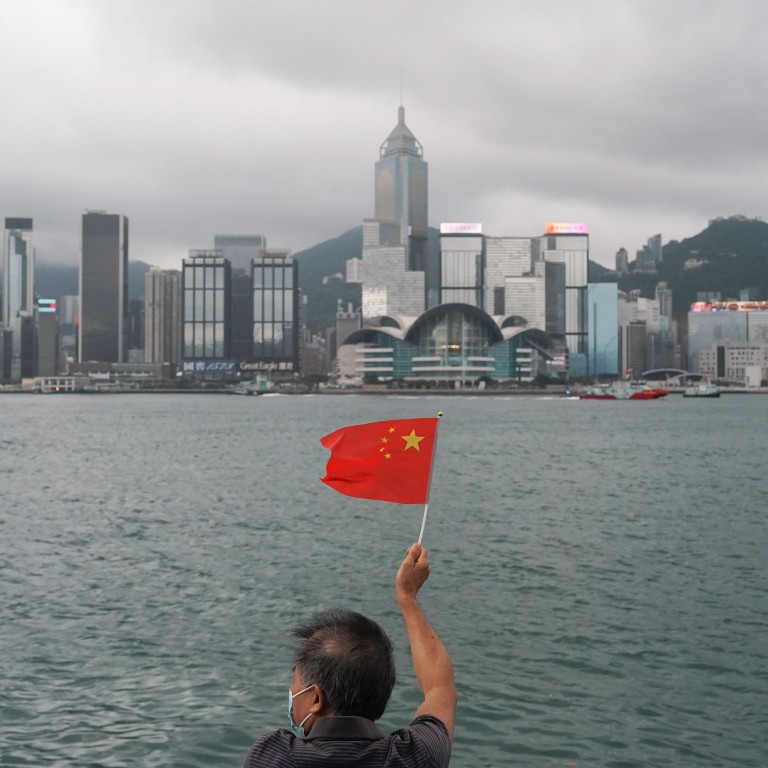
Explainer | Hong Kong elections: 5 things to watch out for in Sunday’s polls, the first since Beijing’s system overhaul
- Performance of the only two opposition candidates, new polling station technology and which state leader will take top role – some key questions surrounding historic Election Committee contest
- Polls for 1,500-member body wielding extensive new powers kicks of Hong Kong elections season
Sunday’s Election Committee polls will be very different to the previous five trips to the ballot box in Hong Kong since the city’s return to Chinese sovereignty.
Officials champion the revamp as putting Hong Kong “back on the right track” following the chaos of the 2019 unrest, while critics say the changes are stifling dissent. Whatever the assessment, there is no denying the results of the coming polls remain significant for Hong Kong.
Spotlight on Hong Kong Election Committee polls
However, only 364 places on the 1,500-member Election Committee are up for grabs on Sunday, with most seats predetermined as uncontested or appointed.
Just 4,889 voters representing different professions and trades will be casting their ballots. Individual voting in all professional subsectors previously won by the opposition has been abolished.
The number of registered voters in total has been slashed by 97 per cent, from 246,440 in 2016 to 7,971 this year.
The new Election Committee, previously only tasked with picking the city’s leader, will shoulder more governing responsibilities.
It will now send 40 representatives, some or all of whom can be from within its own ranks, to the enlarged 90-seat Legislative Council and will nominate all lawmakers.
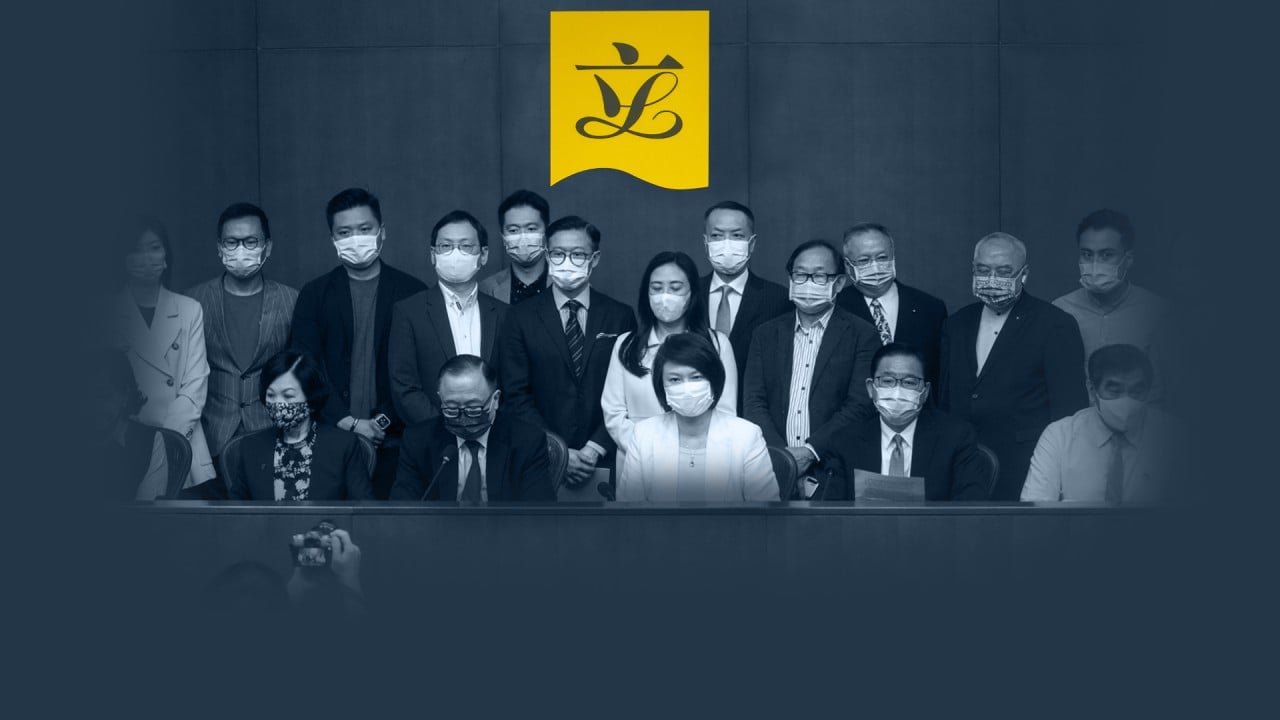
05:10
Hong Kong's revamped electoral system bolsters pro-Beijing influence in key decision-making bodies
The dynamics of the first polls to be held in Hong Kong since the system overhaul could also set a precedent for the coming Legco and chief executive elections.
Here are five things to watch out for at Sunday’s poll:
1) How will patriotic outliers fare?
Only 412 candidates are competing for 364 seats in just 13 of the 40 subsectors. That amounts to an average of 1.13 people contesting each committee seat. It is the lowest number of contested seats since Hong Kong’s 1997 handover from British to Chinese rule.
Although coordination among candidates has filtered out most of the competition, there is still some uncertainty over the final outcome in several subsectors. The spotlight will fall on some candidates, seen as outliers, who joined the race to “test the water” after passing the national security vetting.
What you need to know about Hong Kong’s Election Committee polls
For example, in the architectural, surveying, planning and landscape subsector, 17 candidates, including a list of 15 professionals running as a team, are vying for 15 elected seats. Veteran architect Ivan Fu Chin-shing, who is not among them, signed up on the last day of the nomination period as a first-time contestant.
Seen as an outlier, Fu told the Post that the number of votes he received on Sunday would be an indicator of whether a candidate’s professional record was still a guiding principle for voters.
“I have years of experience on various statutory boards. If I get zero votes at the end, we’ll see a hard truth about the election that our society has to accept,” he said.
‘Big Brother is watching’: why Beijing ordered Hong Kong tycoons onto streets
The most competitive sector will be in medical and health services, where 24 people are vying for 14 seats, and 72 candidates will compete for 60 seats in the labour sector.
2) How will the only two opposition candidates perform?
Five years ago, the opposition camp formed a team called “Democrats 300+” and swept all the seats in several subsectors, including education, higher education, legal, social welfare, information technology and health services.
This year, key members of the bloc have chosen not to run because they do not want to subject themselves to a newly introduced official vetting process they believe is stacked against them.
Cheng Chung-tai, the only opposition lawmaker in the legislature, was disqualified as an ex officio member of the committee. He was also removed from his Legco seat and banned from running for political office for five years.
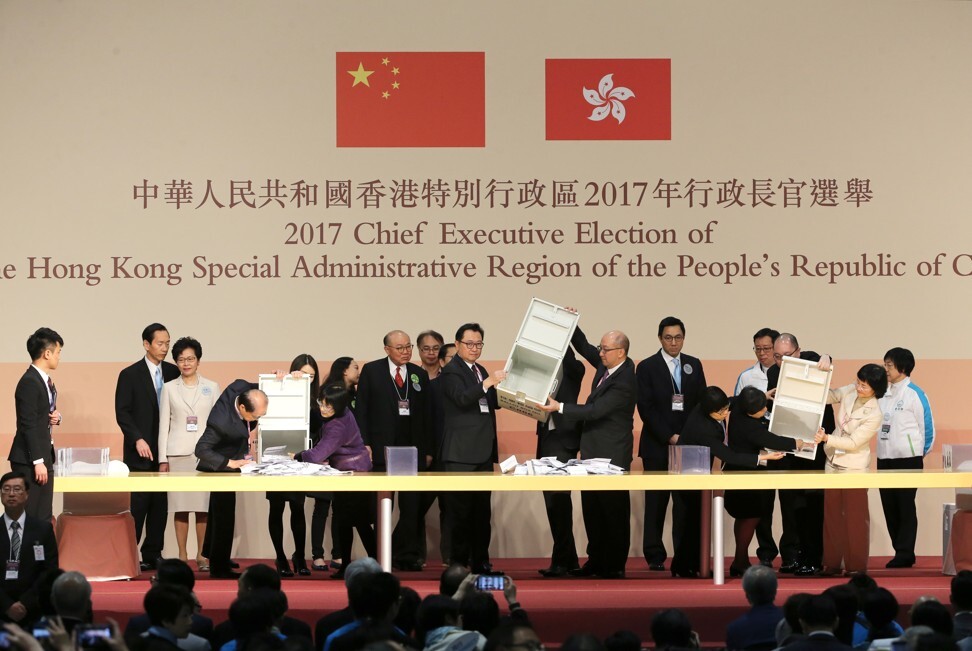
Only two opposition figures have been cleared to join the race – former Democratic Party members Tik Chi-yuen and social worker Francis Chau Yin-ming, chairman of Sai Kung District Council. They are battling for seats in the social welfare subsector and will both be in the limelight on Sunday’s vote.
He said he was concerned how supporting the petition would affect his own chances, but Tik was of the opinion that Chau’s professional track record would speak for itself. “It shouldn’t have a huge impact,” Tik told the Post.
3) What must those elected do next to satisfy Beijing?
Through a citywide outreach campaign ahead of the election, Beijing sent a clear message to hundreds of tycoons and Beijing loyalists who were taking their seats without contest that they must keep their feet on the ground, and knuckle down to collect feedback to improve governance.
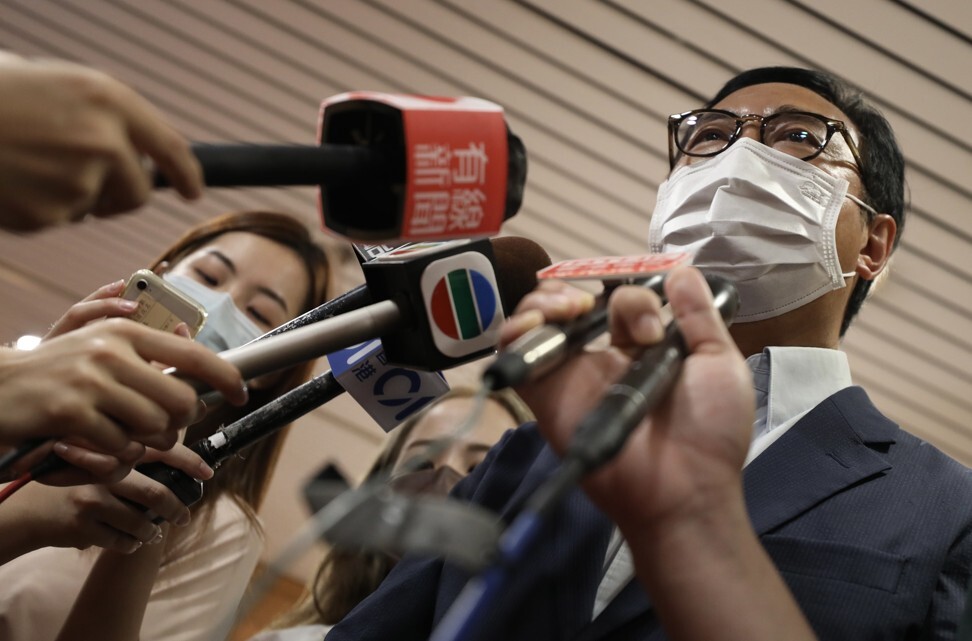
Sunday’s polls will officially kick-start the committee members’ long campaign to help the government solve the city’s deep-rooted problems.
The Post reported that some of the city’s largest property conglomerates had also in recent months formed task forces, racing to develop “outside-the-box solutions” for affordable housing.
Only 2 opposition faces in elections – will Hong Kong politics mirror Macau’s?
Property tycoons’ political clout has been diminished under the revamp, with the richest families informed they would be restricted to each having only two members on the committee.
The public will be looking out for winners’ pledges and the expectations they place on the city’s leader. The Post previously reported that at least 121 candidates had left their manifestos blank when filing their nominations, a new phenomenon pro-establishment analysts called “playing safe in the city’s new landscape of elite politics”.
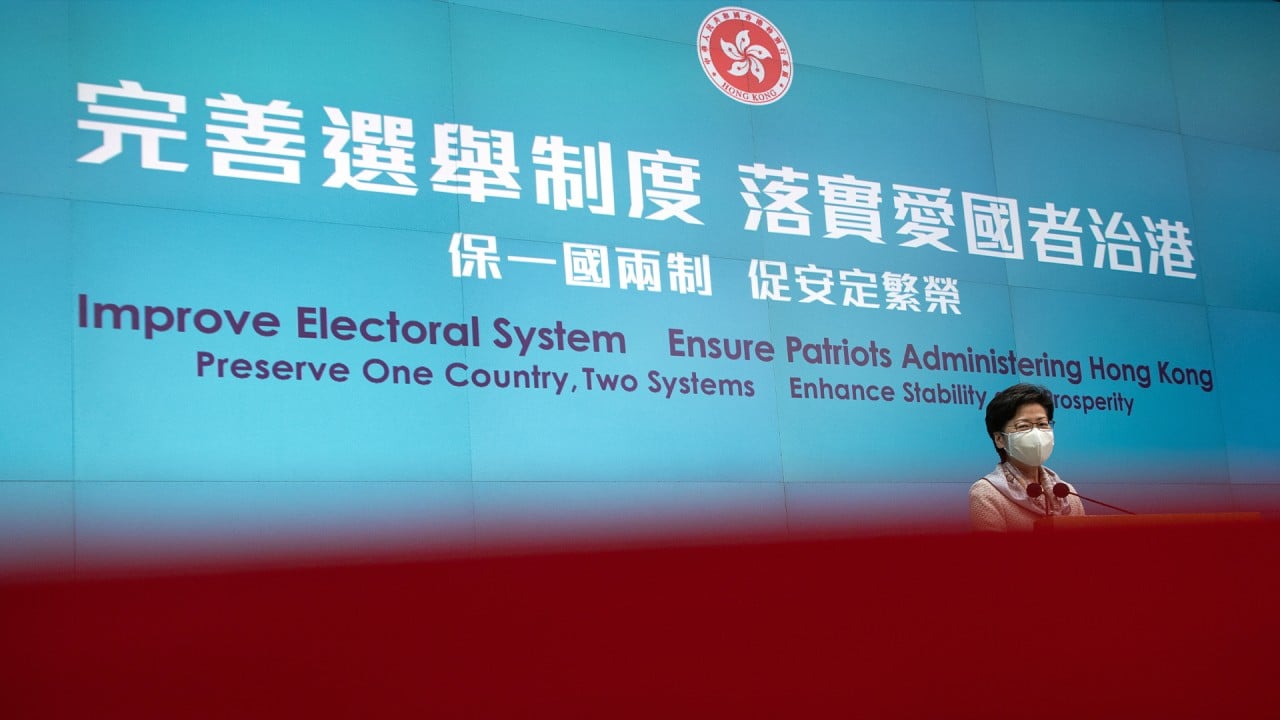
02:34
China’s top legislative body passes sweeping Hong Kong electoral reforms
Before the 1,500-strong committee selects the city’s leader next March, members must first fulfil the unprecedented range of new legislative responsibilities that Beijing has given them.
Their choices of who to send to Legco will be closely watched.
A pro-establishment source has said that Beijing will either provide a “list” of 40 lawmakers or further instruct the fifth sector on who to nominate for December’s legislature elections following the committee polls.
Hong Kong police ‘to deploy 4,000 officers’ to ensure smooth Sunday polls
All Legco candidates are required to secure at least two nominations from each of the committee’s five sectors.
4) How successful are the new electoral arrangements?
For the first time, voters are allowed to bring to the polling station a piece of paper listing the names and numbers of the candidates of their choice for reference when casting their ballot, a concession granted given the considerable number of contestants.
Voting hours for the poll will be reduced following a decrease in the number of people eligible to cast a vote. It also marks the first time the authority will use a digital system to verify identities at polling stations, and a special queue is being introduced for people aged 70 or above or those who have difficulties standing for long periods.
Electoral officials will be keeping tabs on the new measures to see if they are worth deploying in other elections, including the Legco polls on December 19 and the chief executive election on March 27 next year.
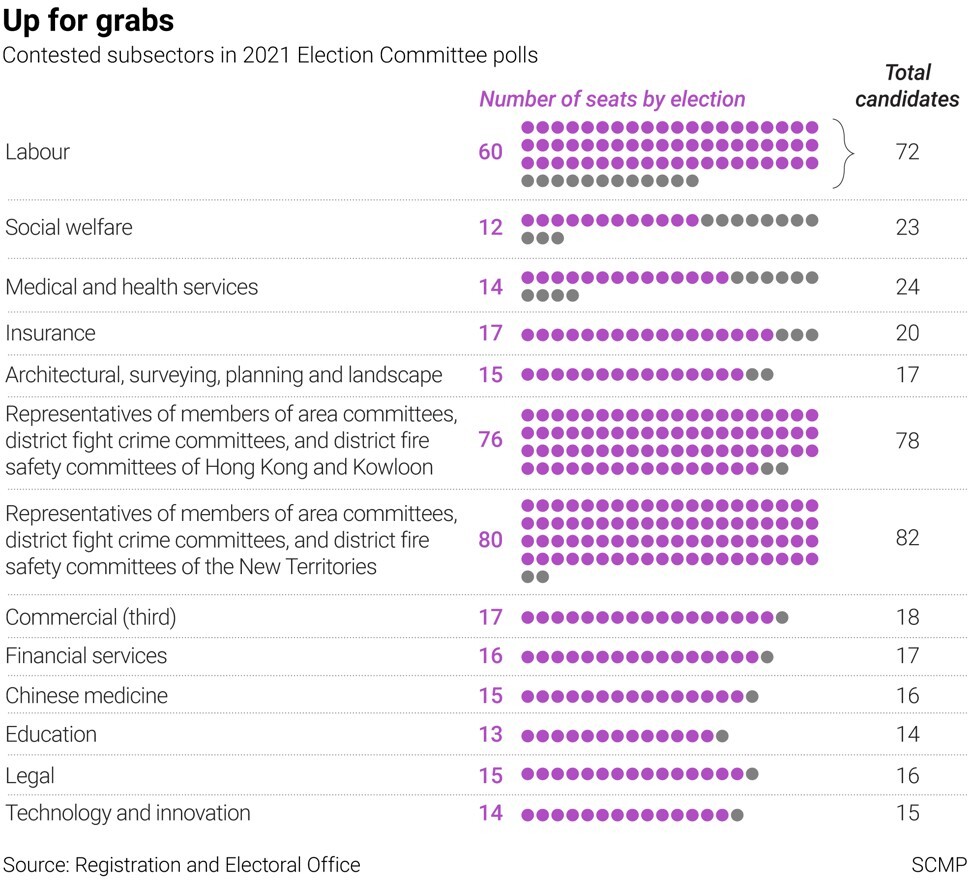
5) Who will become the Election Committee convenor?
The shake-up has created a new post of chief convenor, who will be responsible for running committee meetings when necessary and assigning convenors for each sector.
Tam Yiu-chung, the city’s sole delegate to the National People’s Congress (NPC) Standing Committee, China’s top legislative body, previously told the Post that the new chief convenor would have “transcendent” status above the chief executive.
He said the incumbent would also represent the central government in discussions with committee members when election problems arose, foregoing the need to go through the NPC Standing Committee.
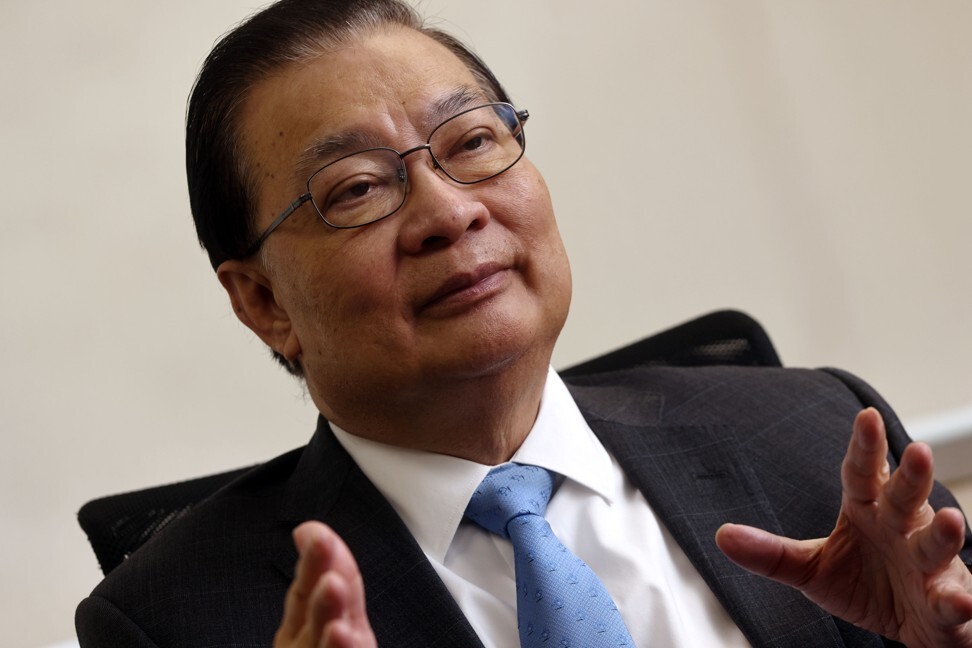
The chief convenor would not have a say in local governance, Tam and Chief Executive Carrie Lam Cheng Yuet-ngor later explained.
The new law says the chief convenor must be a state leader. It would appear the city’s former chief executives – Tung Chee-hwa and Leung Chun-ying – are the only two potential appointees for the position. They both currently serve as vice-chairmen of the Chinese People’s Political Consultative Conference.
The chief convenor would be appointed after Sunday’s poll, Tam revealed on Friday, without setting a time frame.


